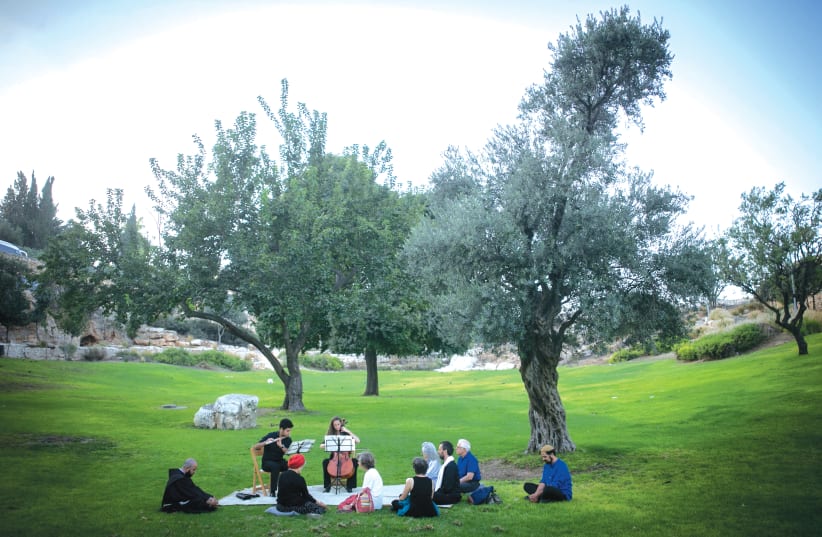To gain the most from time spent outdoors, it is not enough to stare at the view and breathe, but rather one must delve in with all senses to truly gain positive feelings from the experience, Technion-Israel Institute of Technology researchers discovered in a new study.The research, encompassing 1,023 visitors at Ramat Hanadiv Memorial Gardens and Nature Park, found that one must also smell the plants and, if possible, touch them in order to have a thoroughly positive experience interacting with nature.While the two groups that participated in the study – one that took a stroll and one that stopped to smell the flowers – enjoyed their time, the second group got better results in terms of general health.
To understand data better, 303 Technion students were asked to spend 30 minutes outdoors. The students were told what to do during this time: tasks such as smelling flowers or taking a walk with their phone turned off or taking pictures of the landscape.Interestingly, those asked to walk with their phones turned off reported stress and negative feelings after the 30 min, maybe because they experienced FOMO (Fear of Missing Out). Those who were in close contact with nature using their senses (but not taking pictures) reported an increase in positive feelings.
The research was done by Professor Assaf Shwartz, Dr. Agathe Colléony and Dr. Liat Levontin. They argue that it’s possible to use such “cues-to-experience” to enhance the efficiency of planned green spaces and the amount of joy people can get out of them.For example, a text reminder to smell an interesting flower or a sign suggesting touching a tree might be such nudges that would make a walk in the park an experience to shape an entire day.
“Landscape architects and environmental planners need to think about solutions that will encourage the creation of interactions with nature,” Shwartz said, “whose negative impact on biodiversity [like picking flowers] is minimal and positive impact is strong.”
